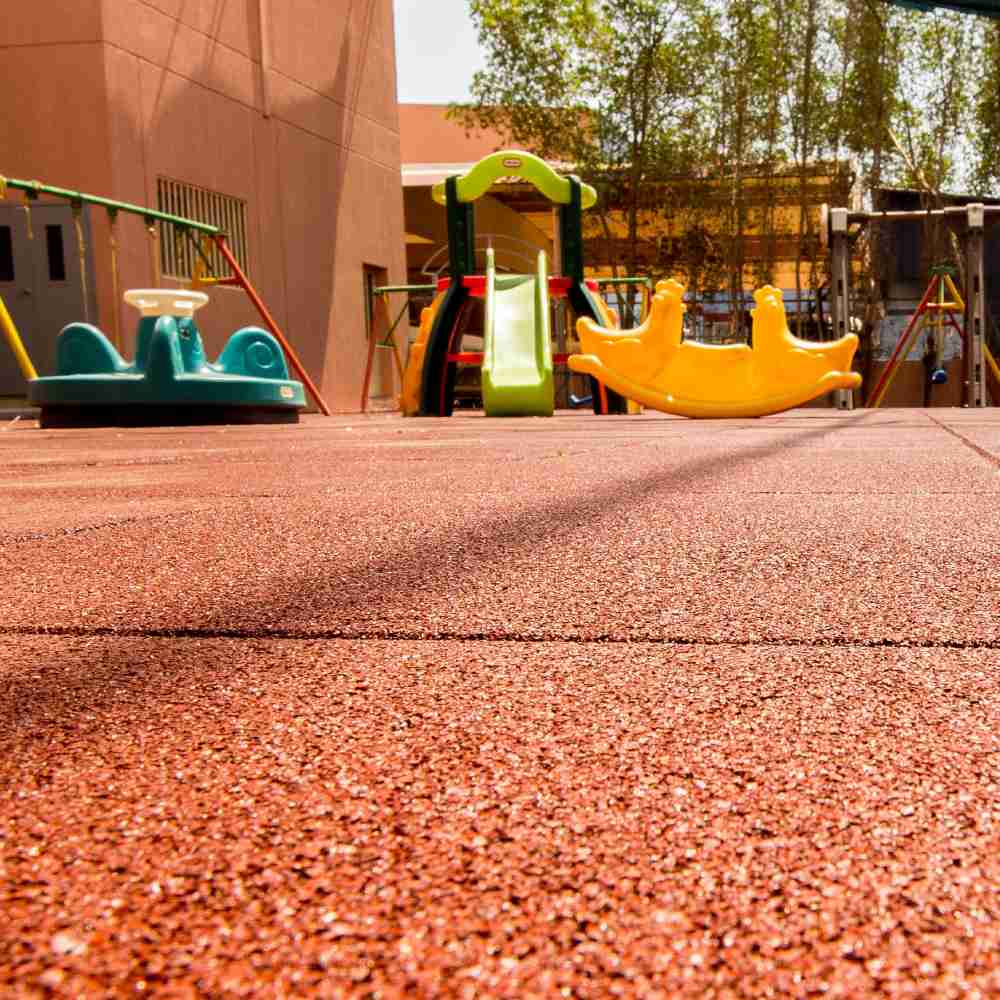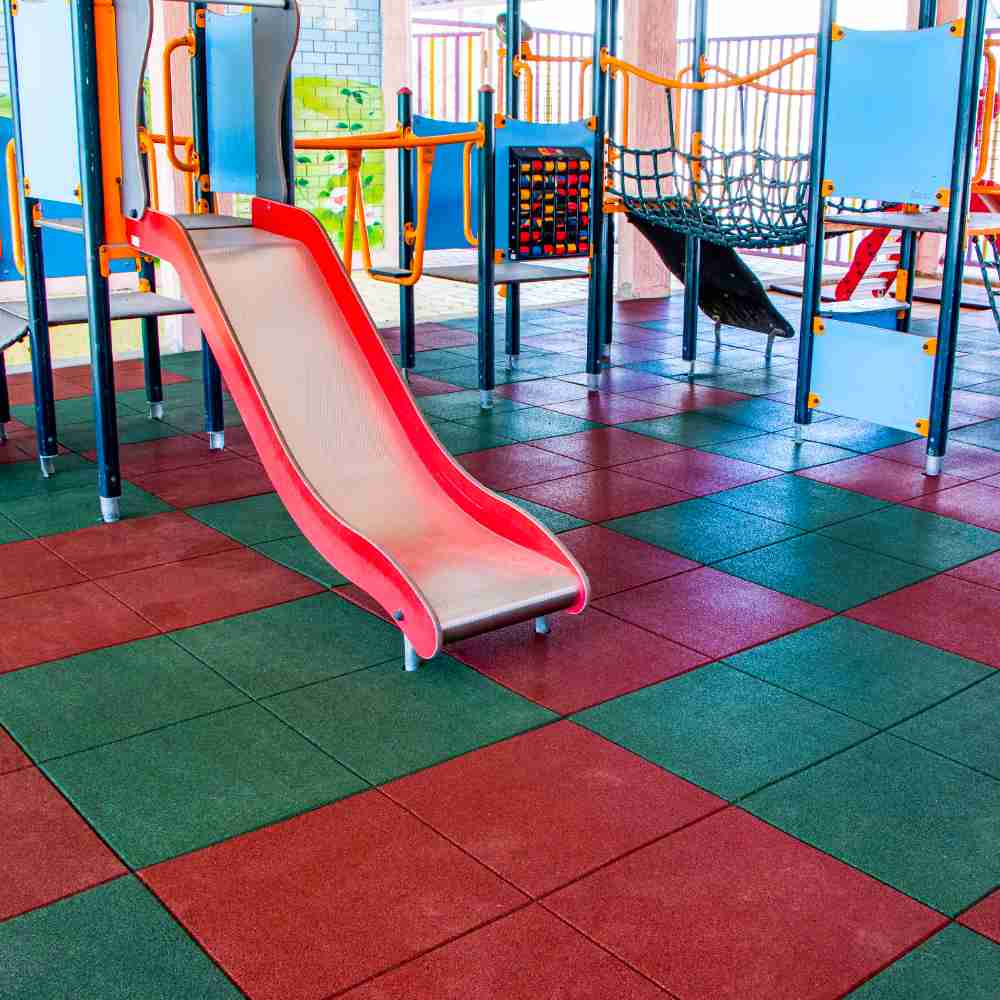Essential Steps to Organize a Functional and Fun Kids' Play Area
Designing a kids' play area can be a rewarding experience that promotes both fun and development for children. Whether you're working with a small backyard or a larger space, creating a functional and safe play area is essential. Here, we’ll explore how to organize a play space that combines entertainment, safety, and long-lasting durability. Using materials like rubber flooring can significantly improve the safety and longevity of the play area.

1. Choose a Safe and Durable Flooring Solution
The foundation of any play area should be its flooring. Safety should always be your top priority when organizing a kids’ play area. According to the American Academy of Pediatrics, falls are the most common cause of injury on playgrounds, so it’s important to choose a material that absorbs impact and reduces the risk of injury.
For this reason, rubber flooring is an excellent choice. It provides a cushioned surface that is non-slip, easy to clean, and highly durable. GreenRub's eco-friendly rubber flooring offers just the right combination of safety and functionality, designed to withstand heavy use while providing comfort. Rubber mats are an excellent option for playgrounds, as they also help with drainage, preventing water accumulation that can cause slippery spots or mud.

2. Create Defined Play Zones
To ensure the area is functional, divide it into different zones based on the activities your child enjoys. For example, you could have a climbing area, a sandbox, a playhouse, and a quiet reading or drawing corner. Organizing the space into separate zones will make it easier for kids to navigate and will keep the play area feeling less chaotic.
- Climbing Zones: Install equipment such as slides, swings, or climbing walls. Ensure that the surrounding area is soft and free from hard surfaces.
- Sandbox or Water Play Zone: If space allows, include a sandbox or a water play zone. These elements are perfect for sensory play and can keep children engaged for hours.
- Quiet Zones: A shaded area with comfortable seating can offer children a place to rest or enjoy quieter activities like reading or drawing.
By creating clear zones, you’ll keep the area organized and allow for more focused play, which is important for a child’s development.
3. Incorporate Functional Storage Solutions
One of the challenges of maintaining a play area is keeping toys, games, and equipment organized. Adding functional storage solutions will ensure the area remains clutter-free and accessible. Here are a few tips:
- Use Toy Bins and Storage Cubes: Store smaller toys in bins with easy access lids to encourage kids to clean up after themselves.
- Shelves for Outdoor Equipment: For larger toys or outdoor equipment, consider weatherproof storage sheds or shelves.
- Hanging Storage for Play Items: Hanging baskets or hooks can be used to store jump ropes, sports balls, or other accessories.
The key is to make sure everything has a place and that children are encouraged to participate in tidying up after playtime.
4. Add Fun and Educational Elements
While safety and functionality are key, adding playful and educational elements can make the space more engaging for kids. Interactive features like chalkboards, musical instruments, or puzzle walls can stimulate creativity and learning. You can also incorporate nature-inspired play, such as planters, or sensory paths using different materials for children to walk on.

A GreenRub rubber flooring solution, especially in fun, bright colors, can be used to mark different paths or zones, giving the area an additional playful element. Having marked pathways can also teach children about direction and spatial awareness.
5. Ensure Proper Safety Measures
Safety should always be at the forefront of any play area design. Apart from selecting the right flooring, make sure the equipment is sturdy, and all sharp edges are padded or covered. Enclose the play area with a soft, sturdy fence to prevent children from running off into potentially dangerous areas.
If you’re installing outdoor structures such as playhouses or swings, be sure they meet safety standards and are anchored properly to avoid tipping. Check regularly for wear and tear, and replace any damaged parts to prevent injuries.
6. Maintain the Area Regularly
A functional and fun play area requires regular upkeep. Keep the play surface clean, check the play equipment for signs of damage, and regularly replenish items like sand or water to ensure the play zones remain inviting. With GreenRub's durable rubber flooring, you can expect easy maintenance with just occasional cleaning, as the material is resistant to dirt, mold, and mildew.
7. Consider Sustainability
When creating a play area, it’s important to keep sustainability in mind. Opt for eco-friendly materials, such as recycled rubber for flooring, which helps minimize environmental impact while still providing a safe and durable surface. Many materials used in kids' playground flooring, like GreenRub’s rubber mats, are made from recycled rubber, which helps divert waste from landfills and reduces the overall carbon footprint.
Conclusion
Designing a kids’ play area is a blend of creativity, safety, and functionality. By using sustainable materials like rubber flooring, dividing the space into distinct play zones, incorporating educational elements, and keeping everything well-organized, you can create a space that encourages fun, learning, and growth. GreenRub’s eco-friendly rubber flooring options offer a great way to ensure the safety and durability of the play area while adding an extra layer of comfort for your little ones.
To learn more about creating a safe, fun, and sustainable play area, visit GreenRub’s website and explore our range of products designed to make your play areas safer and more enjoyable.

 Arabic
Arabic